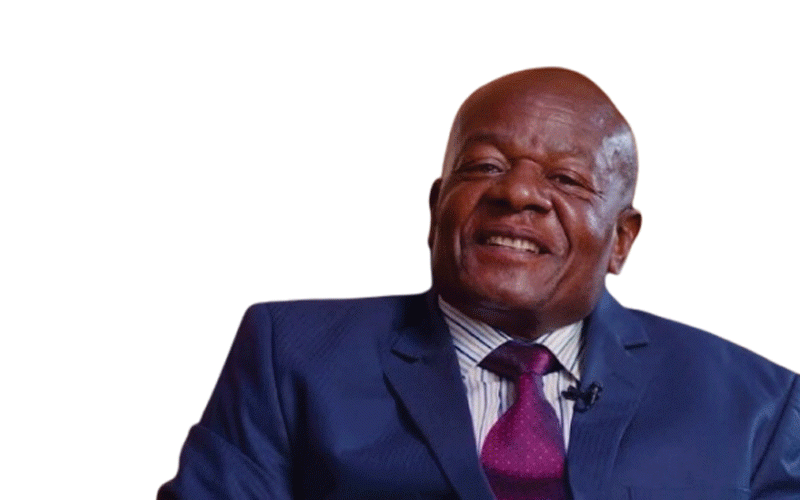
A REGIONAL capacity development workshop focusing on Sexual and Reproductive Health Rights (SRHR),HIV and AIDS began in Johannesburg on Monday, with secretary -general of the SADC Parliamentary Forum, Boemo Sekgoma, calling for collaboration among regional parliaments, civil society organisations, and educational institutions to effectively implement key initiatives for democratic governance and health rights.
Officially opening the workshop, she explained that the capacity development session was meant to enhance the appreciation of all parliaments that have signed the agreement to implement the three-year SIDA-funded SRHR and HIV and AIDS and governance project.
Sekgoma highlighted the role that various partners, including the UN, civil society, and academic institutions, play in advancing SRHR at the parliamentary level.
“Their engagement will boost our implementation efforts and broaden our partnerships with the institution of Parliament,” she remarked.
She expressed gratitude to SIDA for ongoing financial support, noting, “SIDA’s commitment underscores the belief in parliamentary democracy and supports SADC PF programmes.”
Sekgoma traced the history of SADC’s establishment and underscored the importance of parliamentary input in regional governance.
“It was noted over two decades ago that SADC was too executive-oriented. Today, we reaffirm that parliamentarians are not just legislators, but representatives of the people,” she stated.
She highlighted the project’s six focus areas which include SRHR commodity security, gender equality, and democratic accountability and called for incorporating gender perspectives in climate action.
- Little hope for Zim, Africa
- African leaders dying overseas expose cruel deception of independence
- Sadc must intervene on Zim crisis: SA
- Sadc meets over water, energy and food security
Keep Reading
“We have an opportunity to enhance parliamentary interventions regarding the critical contributions women and young girls can make to policymaking in environmental protection and disaster recovery,” she noted.
The secretary-general expressed concern over ongoing issues such as gender-based violence and the reproductive health challenges facing young people in the region.
“Every year, thousands die from unsafe abortion, and comprehensive sexuality education is inadequately provided,” she said and advocated for legislative reforms to support vulnerable populations, including adolescents and the LGBTIQ community.
“Our project encourages outreach to academic institutions and civil society organisations to supplement the information fed to parliament for SRHR reform purposes. We aim for a rule-based and human rights approach that values equality and non-discrimination,” she stated.
She called for intensified efforts toward legislative frameworks that promote human rights and health access for all.
“This is not merely an agenda; it is a moral imperative. Together, we can dismantle the barriers that inhibit the realisation of personal freedoms and health rights,” she said.
Sekgoma urged the SADC region to tackle longstanding SRHR issues that have hindered progress.
“The time is nigh for the SADC region to make progress and resolve once and for all the SRHR issues that have imperilled the region for so long,” she said and stressed the role of SRHR protection in realising ambitious goals, including the Africa Agenda 2063.
She said: “Without this baseline of SRHR protection, the region will not be able to respond to the ambitious aspirations, let alone targets that are closer in time such as the fulfilment of the SDGs.”
Sekgoma called for concerted efforts to end child marriages and unsafe abortions. She also stressed the importance of preparing women and young girls to cope with the effects of climate change, stating, “We cannot end climate change, but we can gear up so that women and young girls are prepared to face climate devastations.”
She urged delegates, who included researchers and senior managers within national parliaments, to influence change directly within their respective parliaments.
“If anyone can make it happen, it is you! Greatness will not come to you; you will need to reach out for greatness!” Ms Sekgoma said.
She added: “In the 21st century, influencing change occurs through innovation. You need to think laterally, outside of the box, to engage MPs and devise activities which are effective.”
Additionally, she highlighted the flexibility of the current project framework, which allows for adaptive strategies tailored to national contexts. She also reminded participants of the significance of using varied project activities and materials to foster awareness and drive engagement.
“You have all the tools at your disposal to innovate and create an impact, and we are confident that you will succeed in this goal.”
The workshop which ends today emphasises the importance of enacting progressive legislation, ensuring budgetary allocations, strengthening oversight, and fostering inclusive representation in crucial legislative processes.
Participants will engage in expert presentations, interactive discussions, and innovative learning methodologies.
The workshop covers key thematic areas including the promotion of comprehensive sexuality education, protection of marginalised groups, and legislative measures to eliminate gender-based violence. Additionally, it seeks to address pressing regional issues such as early and unintended pregnancies and unsafe abortions.
Expectations are that by the end of the session, participants will better understand their roles in fostering democratic accountability and advancing human rights-related SRHR issues in their respective parliaments.










